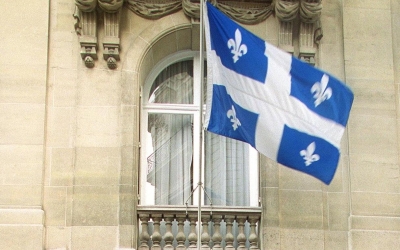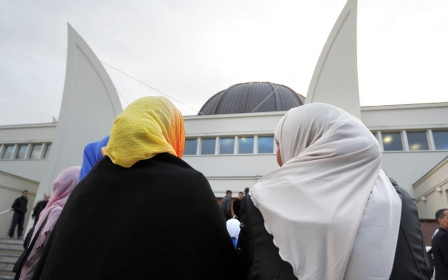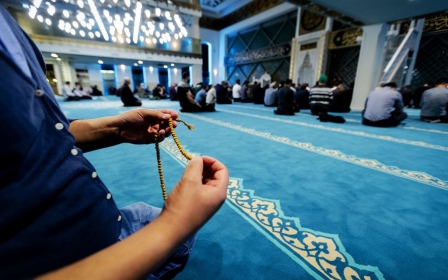Quebec court upholds law banning 'religious symbols', with exceptions
A court in the Canadian province of Quebec has upheld parts of a law that bans some government workers from wearing religious symbols - such as the hijab - at work, despite acknowledging that it violates the rights of Muslim women.
In a 242-page ruling, the Quebec Superior Court ruled on Tuesday that, while the law known as Bill 21, has "serious and negative consequences for all those who wear religious symbols in public", it ultimately does not violate "the Canadian constitutional architecture".
New MEE newsletter: Jerusalem Dispatch
Sign up to get the latest insights and analysis on Israel-Palestine, alongside Turkey Unpacked and other MEE newsletters
Still, the court struck down parts of the bill, saying that English schools in the French-speaking province would be exempt from the ban.
It also said that members of the National Assembly (MNAs) were allowed to wear religious symbols that covered their faces, such as the niqab, according to CBC News.
Bill 21, which was passed in 2019, issued a ban on public workers in "positions of authority", including teachers, judges, and prosecutors, from wearing religious symbols such as the hijab, the Sikh turban, and the Jewish kippah.
The legislation has drawn widespread controversy since it was passed, sparking protests and lawsuits from civil liberties groups who say it infringes on religious freedoms.
The National Council of Canadian Muslims (NCCM), a Muslim advocacy and civil liberties group, said Tuesday's ruling made it clear there were "fundamental problems" with the law.
"Bill 21 causes serious harm. As we examine our options, we will not stop until all Quebecers are treated fairly," said Khalid Elgazzar, NCCM's vice chair, as reported by Al Jazeera.
Quebec's secularism
The legislation is a part of a years-long debate in Quebec over the issue of secularism and the protection of minority rights.
In 2017, Quebec passed a law, Bill 62, that barred individuals from giving or receiving public services with their faces covered.
It was met with widespread public protests, and was later suspended after a Muslim woman in Quebec who wears the niqab filed a legal challenge against the law, arguing it violated her constitutional rights.
Canadian Prime Minister Justin Trudeau has spoken out against Bill 21, saying in 2019 that it was "unthinkable" to "legitimise discrimination against citizens based on their religion".
"We do not feel it is a government's responsibility or in a government's interest to legislate on what people should be wearing," he said.
However, the provincial government has said the 2019 law was necessary to preserve Quebec's version of secularism, while critics of the bill say it is an attack on religious minorities and freedom of expression.
In March, a survey by the Canadian polling firm Leger found that a majority of Quebecers favoured a public ban on the wearing of religious symbols.
Middle East Eye delivers independent and unrivalled coverage and analysis of the Middle East, North Africa and beyond. To learn more about republishing this content and the associated fees, please fill out this form. More about MEE can be found here.





